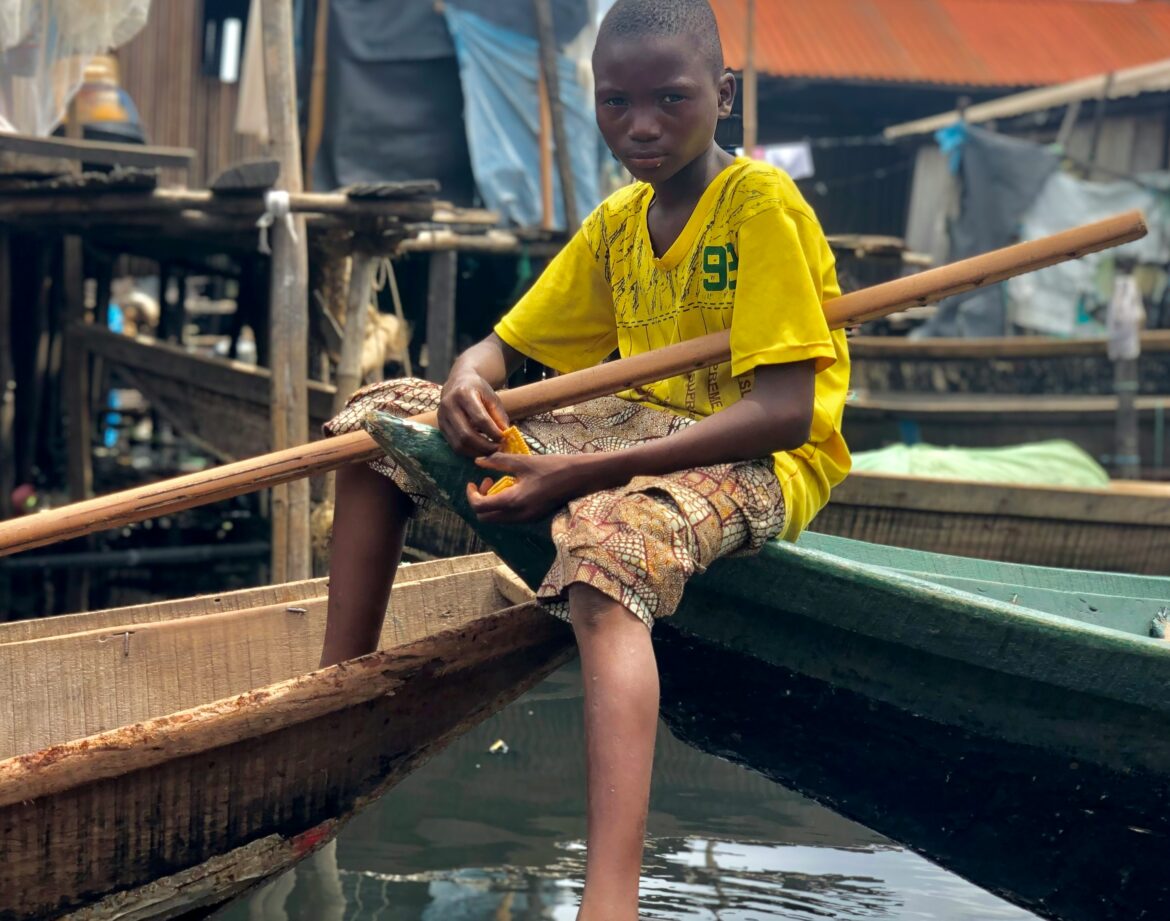Life In A Floating Slum In Africa – Makoko
Life at Makoko, a floating slum in Lagos, Nigeria, is marked by perseverance and special difficulties. Thousands of people live in improvised wooden and corrugated metal homes in Makoko, which is perched above the Lagos Lagoon. An overview of possible daily life in Makoko is shown below:
Housing: Many of the homes in Makoko are constructed without any infrastructure or design, perched over the water. The residents are always in danger because these buildings are prone to flooding and collapsing. There is not much room for movement and little ventilation in the living quarters.
Daily Life: To make ends meet, Makoko residents participate in a variety of activities. For many locals, fishing is a major source of income, and they depend on the lagoon for their daily catch. Small-scale company ownership, boat building, and commerce are further common jobs. Navigating environmental challenges, such as waterborne infections and the ongoing risk of flooding, is the focus of daily life.
Infrastructure: Makoko lacks basic infrastructure, including waste management systems, potable water supplies, and sanitary facilities. There are health risks because locals frequently use the lagoon’s contaminated waters for drinking, cooking, and even washing. Due to the lack of electricity, many homes either use generators or candles to illuminate their spaces.
Education: Although Makoko has a few unofficial schools, there aren’t many options for formal education. Many kids lack access to formal education because there aren’t enough schools in their area or because they can’t afford it. As a result, the community’s literacy rates are frequently poor.
Healthcare: There is a lack of access to healthcare services in Makoko. A few clinics or health centers might exist, but they frequently lack enough funding and medical staff. Locals rely on conventional treatments or go to other areas for medical care, which might be difficult because of transportation problems.
Community Resilience: People in Makoko are incredibly resourceful and resilient, even in the face of difficult living circumstances. They have established supportive networks and tight-knit communities to aid one another in difficult times. The customs and cultural legacy of a community greatly influence its identity and way of life.
Government Intervention: Because Makoko is an informal and unregistered business, the government has frequently threatened to evict it. To defend their rights and thwart forcible evictions, the locals have banded together. Humanitarian organizations and non-governmental organizations (NGOs) also offer assistance in fields including education, healthcare, and infrastructure development.
In conclusion, poverty, environmental issues, and restricted access to basic amenities are the hallmarks of Makoko existence. Nonetheless, despite the obstacles, the locals show resiliency and camaraderie in the face of hardship, working to improve their living conditions.

